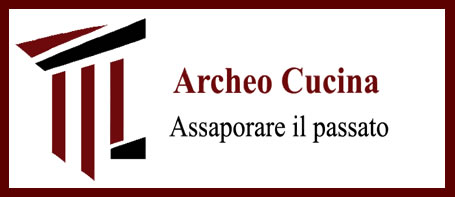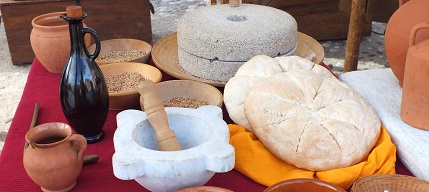Who was Apicius?
To answer this question one in 'first distinguish the character that we're talking about. Apparently they lived three Apicius and all three years had to do with the kitchen, it is said they had a family relationship between them because the name "Apicius" was not transmitted as a surname, but apparently used as a nickname with the meaning of "greedy".
The first is an ancient Roman lived in the 90s of the first century. B.C. famous for having surpassed all his contemporaries in expenses without brakes. Was noted for being hurled against the law of the Fennia 161 a. C., a sort of sumptuary law that sought to put a limit to the waste at banquets and the number of guests. According Posidonius Apicius was responsible for the exile of Publio Rutilio Rufo, author of a history of Rome in greek and famous for the modesty of its entertainment.
The second by the name of Marcus Gavius Apicius lived between 25 BC and 37 AD, was very well-known at the time, both mentioned by Seneca that Pliny, so much that he went on accumulating anecdotal exuberant. You will, for example, that harbored morays with the meat of the slaves, and who killed himself when he realized that his immense wealth after it squandered in banquet, was reduced to only ten million gold and would not longer allowed the standard of living to which he was accustomed. Apicius was harshly criticized by Seneca that points to Jesus as "a bad example" for Youth and Martial who speaks saying, "you had lavished, Apicius, for your goodies sixty million sesterces and you still had a nice margin of ten million . But you refused to endure what for you was hungry and thirsty, and you've been drinking, as a last drink, the poison: you never acted, Apicius, more voraciously. "De re coquinaria (The culinary art) is perhaps a rehash an old cookbook of Marco Gavius. Another hypothesis is that the author of this work has been a certain Celio (whose name appears in some codes after that of Apicius), but probably the name Celio is a conjectural insertion of humanistic period. The fact remains that these texts are the main source surviving on food in ancient Rome.
The third we find it in the second century. A.D. was a Roman cook, discovered a way to preserve the fresh oysters and send them to the emperor Trajan while he was in Mesopotamia in 115 AD about. The information comes from what remains of Deipnosophists "a work in fifteen books of the writer greek University of Naucratidi". If correct would be the third Apicius expert in gastronomy. The late Roman cookbook of Apicius presents a recipe for preserving oysters. It is probably the only detail where the recipe has a historical connection with one of the three Apicius.

|

